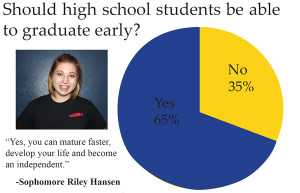New form of social activism causes real-world change
Armed with technology and a voice, everyday citizens from Cairo to New York are transforming into online activists. In moments, they can publish their thoughts of the chaos around them for the entire world to see. Yet critics wonder whether this new form of social activism is actually making a difference.
Unlike their real-life protesting counter-parts, virtual protestors get to sit back and watch revolutions unfold from the comfort of their own home. They can be just as involved and make just as much difference as the people marching down the street with protest signs.
Social activism has always been a way for people to cause positive change in the community but the advent of the Internet has greatly intensified that change. Social media sites are the prime canvases of online activism because they allow the user to share their thoughts and ideas in just a click of a button.
With the average Facebook user having 130 friends, one post can reach hundreds of eyes in seconds. Activists took this method and used it to dominate 2012.
Known as the year of the virtual protestor, 2012 was the pinnacle of online activism. From SOPA to Kony2012 and the aftermath of “Innocence of Muslims” to the ever growing lists of grievances for tighter gun control laws. All of these events earned a considerable amount of online support, but it was the Arab Spring movement in the Middle East, which began in 2011, that still garnered the most attention from the outside world.
Reminiscent of the printing press revolution in Europe, online activism in the Middle East spread information too fast for the Arab leaders to control. In a blink of an eye, revolution was on the cusp and dictators’ attempts to control its citizens only added more fuel to the fire.
People like Wael Ghonim, the Google executive turned online activist, and other online supporters helped bring about real change that removed Hosni Mubarak and other tyrannical leaders from office.
It wasn’t Facebook, twitter, or any other online platform that brought down the fascism in Egypt, but the voices behind the screen names that spoke up and let their voice be heard, causing just as much change as the people at Tahrir Square.
Your donation will support the student journalists of Klein High School. Your contribution will allow us to purchase equipment and cover our annual website hosting costs.








